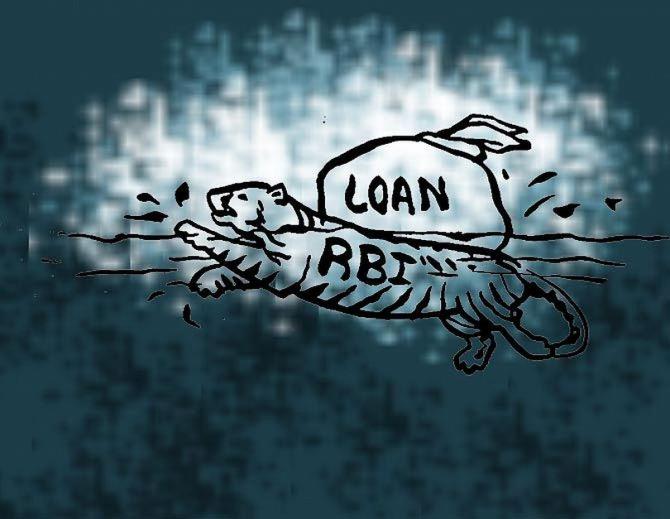The year 2022 saw the Reserve Bank of India (RBI) start acting on the policy repo rate after a gap of two years.

The six-member monetary policy committee of the RBI reduced interest rate sharply — by 115 bps — when Covid-19 struck in 2020. In March 2020, days after the nationwide lockdown was announced, MPC in an unscheduled meeting reduced the repo rate by 75 bps, followed by another 40 bps in May.
Status quo was maintained for the next two years since the May repo rate hike.
The clamour for interest rate hike started to grow from the middle of 2021, but majority of the MPC members decided to hold repo rate as the economy was not yet out of the woods.
However, many liquidity support measures announced during 2020 were reversed even though the policy rate was not touched.
It was another out-of-turn meeting, the rate setting panel decided to increase the repo rate in May this year.
The trigger was the Russia-Ukraine war, which sent the central bank’s inflation forecast haywire.
Just before the war broke out in late February, CPI inflation was projected at 4.5 per cent for 2022-23.
The repo rate hike of 40 bps in May was also the first since Shaktikanta Das took charge as the RBI governor December 2018.
CPI inflation has stayed above the central bank’s upper tolerance band for the first 10 months of 2022.
Average retail inflation staying outside 2-6 per cent for three consecutive quarters was construed as a failure of the monetary policy.
So far this year, the repo rate has been increased sharply — 225 bps to 6.25 per cent.
The recent commentary by Das and RBI Deputy Governor Michael Patra suggests they would again vote for a hike when the MPC meets in February.
However, two external members — Jayanth Varma and Ashima Goyal — have argued for a pause.
While the outcome of the February meeting is still open, many believe the central bank will be heading for a long pause before rates can be lowered again.
“While 2022 was largely about finding peak policy rates in major markets, 2023 is likely to be about how long many of these central banks choose to keep policy rates at peak levels,” said Suyash Choudhary, head, fixed income, IDFC AMC.
“In our view, policy rates have either already peaked or are 25 bps from the peak.
"On the basis of current expectations, we expect a long pause thereafter,” Choudhary said.
CPI inflation — the main yardstick for monetary policy making — has come back within the tolerance zone of 2-6 per cent in November.
According to the RBI’s projection, CPI inflation will stay below the upper tolerance band for the first half of the next financial year.
CPI inflation is seen at 5 per cent for the April-June period and 5.4 per cent in the July-September period.
According to Rupa Rege Nitsure, chief economist, L&T Finance Holdings, growth concerns could prompt the RBI to indicate a pause in the February policy, before starting to cut rates again from July-August 2023.
“Weak prints for manufactured product price inflation in WPI in recent months despite elevated cost pressures indicated the weak pricing power of manufacturing companies.
"On the other hand, headline CPI is expected to fall below 6 per cent in Q4, FY23 and hover near 5 per cent in Q1, FY24.
"Clearly the downside risks to growth are way above the upside risks to inflation,” Nitsure said.
“Against this backdrop of domestic growth, inflation mix, and increasing risks of global recessionary tendencies, there is a very high probability that MPC may recommend a pause in February 2023 and start easing the policy repo rate from July-August 2023 to counter the economic slowdown,” she added.
Siddhartha Sanyal, chief economist of Bandhan Bank, said, “The spike in inflation during 2022 led to a sharp front-loading of interest rates by several central banks, including the RBI.
"However, inflation in India is expected to stay mostly within the RBI’s tolerance band. Trajectories of external sector balance and INR are expected to offer some comfort for the RBI.”
“Against that macro backdrop and at the current level of the repo rate, the need for further rate hikes is minimal.
"There is a strong possibility for the MPC to keep the repo rate unchanged for several months, including in February,” he added.
The February MPC meeting could be an important one, as it may shed some light on the future trajectory of interest rates in India. The meeting is scheduled days after the Union Budget – the last full Budget before the 2024 general elections.











